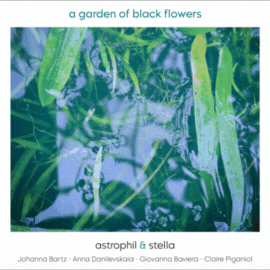Diese CD-Produktion darf als das kammermusikalische Testament von Lars Vogt angesehen werden, der im November 2022 an Krebs verstorben ist.
Im ersten Trio op. 99 gelingt den drei Interpreten eine wunderbare Mischung aus leidenschaftlichem, kontrast- und akzentreichem Musizieren sowie lyrisch-empfindsamem Interpretieren. Das Andante un poco mosso ist wohl ein Musterbeispiel für dieses differenzierende Musizieren, das sich von der Wirklichkeit löst und in musikalische Schichten eindringt, die nicht viele Trios erreicht haben. Auch das Scherzo wird in seinem feinfühligen Wechsel von Licht und Dunkel, von Auf- und Zusammenbruch sehr bewegend.
Danach folgt das Notturno op. 148, in dem die Tetzlaffs und Vogt herausschälen, was Schubert im Innersten bewegte. Das leichte Rondo beendet die erste CD.
Im aufgewühlteren Opus 100 zeigt das Trio ein perfektes Verständnis für die Geheimnisse dieser einzigartigen Musik. Im ersten Satz wechseln drängendes Spiel mit viel Impetus und einem ergreifenden Abbremsen und Verweilen. Die Kontraste wirken spontan und kommen aus innerster Seele.
Im Andante con moto, dem charakteristischsten Satz des Trios mit seinem unerbittlichen, ab- und zunehmenden Wanderer-Schritt kommt das wiederholte schmerzvolle Aufschreien verzweifelt herüber. Nach diesem Drama wird das Scherzo nicht auftrumpfend gespielt, sondern es wirft viele Fragen auf. Ein reich beleuchtetes Allegro moderato beendet dies herausragende Interpretation des Opus 100.
Die Arpeggione-Sonate wurde für das von Johann Georg Staufer gebaute Arpeggione komponiert, ein Instrument, das sechs Saiten hatte und auch als Bogen-Gitarre bezeichnet wurde. Diese Sonate auf dem Cello zu spielen ist eine technische Herausforderung, die Tanja Tetzlaff aber brillant meistert. Sie spielt scheinbar mühelos, mit viel Sensibilität und einem betörend lyrischen Klang. Dabei wird sie exzellent von Lars Vogt unterstützt. Er ist ihr ein inspirierter Partner, der weiß, wie der Dialog und das gemeinsame Atmen zu führen sind.
This CD production may be regarded as the chamber music testament of Lars Vogt, who died of cancer in November 2022.
In the first Trio op. 99, the three performers achieve a wonderful blend of passionate music-making rich in contrast and accent, as well as lyrical, sensitive interpretation. The Andante un poco mosso is arguably a prime example of this differentiating music-making, which breaks away from reality and penetrates musical layers not many trios have reached. The Scherzo also becomes very moving in its delicate alternation of light and dark, of upheaval and collapse.
This is followed by the Notturno, Op. 148, in which the Tetzlaffs and Vogt draw out what moved Schubert at his core. The light Rondo ends the first CD.
In the more agitated Opus 100, the trio shows a perfect understanding of the mysteries of this unique music. In the first movement, urgent playing alternates with much impetus and a poignant slowing down and lingering. The contrasts seem spontaneous and come from the innermost soul.
In the Andante con moto, the most characteristic movement of the trio, with its relentless, descending and increasing wanderer’s pace, the repeated painful crying out comes across as desperate. After this drama, the Scherzo is not played in a showy manner, but it raises many questions. A richly lit Allegro moderato ends this outstanding interpretation of Opus 100.
The Arpeggione Sonata was composed for the arpeggione built by Johann Georg Staufer, an instrument that had six strings and was also called a bowed guitar. Playing this sonata on the cello is a technical challenge, but Tanja Tetzlaff masters it brilliantly. She plays seemingly effortlessly, with great sensitivity and a beguilingly lyrical sound. She is excellently supported by Lars Vogt. He is an inspired partner for her, who knows how to conduct the dialogue and breathe together.

























